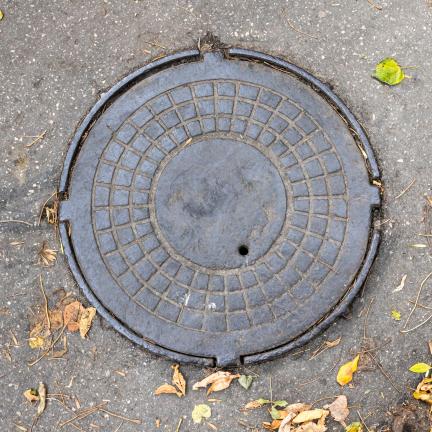Sanitary Sewer Overflows

Sanitary Sewer Overflow Overview
Prince William Water works diligently to operate its sanitary sewer system safely and reliably. Prince William Water’s sanitary sewer system comprises approximately 60 sewage lift stations and 1,100 miles of gravity and pressurized sewer mains that collect and transport domestic, commercial and industrial wastewater to treatment facilities. Prince William Water’s Sanitary Sewer System Preventative Maintenance Program includes video inspections of sewer mains and manholes, sewer main and manhole rehabilitation, and pump station and sewer main replacements. In addition, Prince William Water performs weekly physical inspections and maintenance of each sewage pump station.
Occasionally, a sanitary sewer overflow (SSO) can occur, resulting in the release of raw sewage from the system before it reaches a wastewater treatment plant. The U.S. Environmental Protection Agency (EPA) estimates that up to 75,000 SSOs occur throughout the country every year. Prince William Water has consistently been among the top-performing public sewer agencies in the country, which average two or fewer SSOs per year for each 1,000 miles of sewer mains in their systems.
Frequently Asked Questions
How does Prince William Water notify the public if an SSO occurs?
For reportable SSOs, Prince William Water posts on its website, Facebook and X. Signs in English and Spanish are placed at SSO sites, warning of potential illness for at least seven days.
What does Prince William Water do to reduce the potential of SSOs?
Prince William Water has invested in sewer improvements to prevent SSOs, including cleaning and maintaining the system:
- Rehabilitating and replacing broken or leaking lines to reduce storm water and groundwater infiltration into the sanitary sewer.
- Upgrading or expanding sewer lines and pump stations.
- Increasing sewage treatment capacity and improving plant dependability.
- Removing fat, oil and grease (FOG) buildup from sewer systems.
- Educating the public on how household goods like FOG and wipes can block sewer pipes.
Is it possible to totally prevent SSOs?
Unfortunately, overflows cannot be prevented entirely. The EPA indicates that “a few SSOs may be unavoidable. Unavoidable SSOs include those occurring from unpreventable vandalism, some types of blockages, extreme rainstorms, and acts of nature such as earthquakes or floods.”
What should I do if I encounter an SSO?
SSOs discharge water and other contents from the sanitary sewage system. Avoid contact and report them to the Prince William Water Emergency Dispatch line at (703) 335-7990.
More information on the extent of environmental and human health impacts caused by SSOs can be found in the EPA report Impacts and Control of CSOs and SSOs.
Is Prince William Water required to report SSOs to regulating and enforcing agencies?
Any SSO that enters state waters or may reasonably be expected to enter state waters is reportable. Signage is placed at the site of the incident for seven days for reportable SSOs. Prince William Water also posts information about any active SSOs on our website and social media accounts. VDEQ maintains a Pollution Response Program (PREP) database, which is accessible to the public. This database shows all open SSO cases throughout the state, as well as a five-year period of record for closed SSO cases.
What can I do to help prevent SSOs?
To prevent clogs and SSOs, never pour fats, oils, or grease (FOG) down drains. Dispose of them in sealed containers. Despite being labeled "flushable," wipes can cause clogs and should not be flushed. Ensure storm water connections are correct and report suspected issues. Keep sewer cleanout caps secured for line access.
Why do SSOs occur?
Most sewer systems experience occasional SSOs. Some SSO causes are:
- Inappropriate materials placed into sewers, such as fats, oils and grease (FOG) and some household products such as baby and facial wipes, sanitary pads and tampons. All of these can create blockages.
- Tree roots and/or excessive stormwater or groundwater entering sewer lines through defects or cracks.
- Inappropriate connections such as sump pumps, roof gutters and downspouts, foundation drains and area drains.
- Power loss.
- Equipment failures and breaks.
- Intentional acts of vandalism.
- Heavy rainfall and natural disasters.
What is an SSO?
A sanitary sewer overflow (SSO) is an overflow of untreated or partially treated sewage from a sanitary sewer system.

